All Stories
-
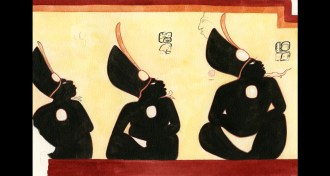 Anthropology
AnthropologyAncient Maya bookmakers get paged in Guatemala
New discoveries peg ritual specialists as force behind bark-paper tomes and wall murals.
By Bruce Bower -
 Physics
PhysicsWhen entering a black hole, fasten your seat belt
Rapidly spinning black holes can generate turbulence, a new analysis shows.
By Andrew Grant -
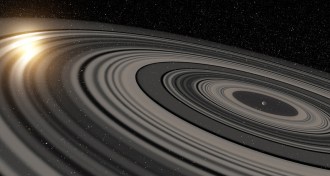 Astronomy
AstronomyGiant rings encircle young exoplanet
Stretching 90 million kilometers from their center, 37 stripes of dust around exoplanet were probably crafted by moons.
-
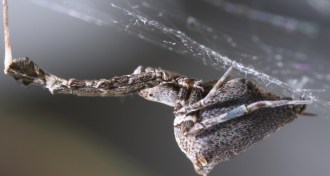 Animals
AnimalsHow a spider spins electrified nanosilk
The cribellate orb spider (Uloborus plumipes) hacks and combs its silk to weave electrically charged nanofibers, a new study suggests.
-
 Cosmology
CosmologyDust erases evidence for gravity wave detection
The claimed detection of primordial gravitational waves does not hold up after taking into account galactic dust, a new analysis concludes.
By Andrew Grant -
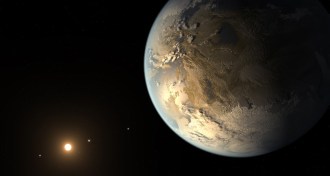 Astronomy
AstronomyNeptune-like worlds could become habitable
Mini-Neptunes can drift toward their stars and lose their atmospheres, leaving behind ice-rich rocky cores that can become watery worlds.
-
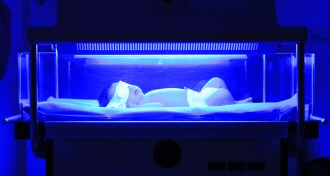 Health & Medicine
Health & MedicineEven when correct, diagnoses can harm kids
Overdiagnosis is well documented in adults but is often overlooked in children and can lead to unnecessary treatments.
-
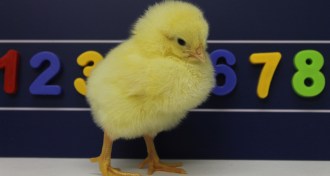 Neuroscience
NeuroscienceChicks show left-to-right number bias
Recently hatched chicks may have their own version of the left-to-right mental number line.
By Susan Milius -
 Genetics
GeneticsPregnancy in mammals evolved with help from roving DNA
DNA that “jumped” around the genome helped early mammals shift from laying eggs to giving birth to live young.
-
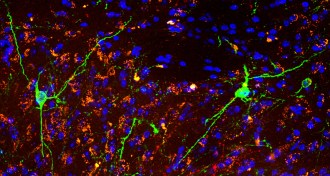 Neuroscience
NeuroscienceNewly identified brain circuit could be target for treating obesity
In mice, specific nerve cells control compulsive sugar consumption, but not normal feeding, hinting at a new therapeutic target for treating obesity.
-
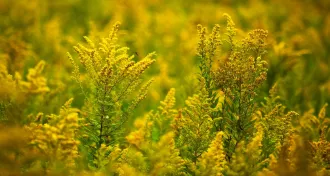 Plants
PlantsPlant chemical weaponry may offer ammunition for pesticides
Chemicals produced by two plant species disrupt insect hormone pathways and could be developed in to efficient, safe pesticides.
-
 Health & Medicine
Health & MedicineEbola vaccine performs well in U.K. human trial
A vaccine that protects against the Zaire strain of Ebola turns in promising preliminary results from a human trial.